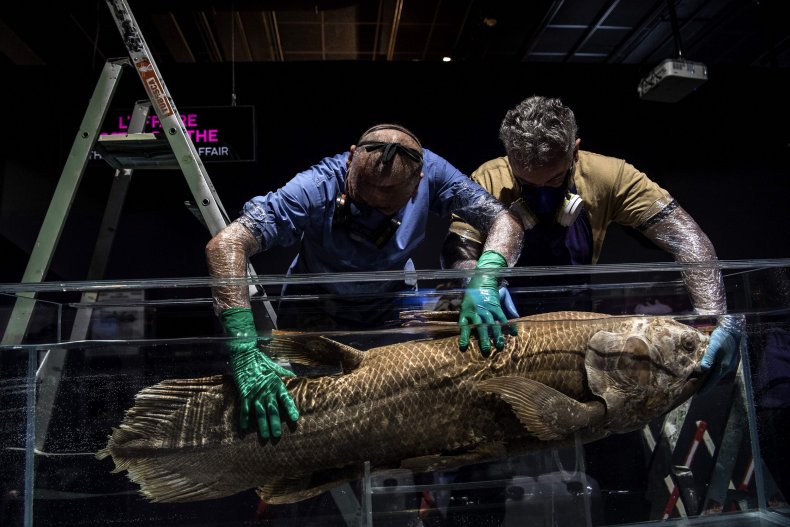Extinct Fossil Fish’ Dating Back 420 Million Years Found Alive in Madagascar
Agroup of South African shark hunters have unwittingly rediscovered a population of fish predating dinosaurs that many in the scientific community believed to be extinct.
The “four-legged fossil fish” known as the coelacanth has been found alive and well in the West Indian Ocean off the coast of Madagascar, according to a report from the nonprofit environmental conservation platform Monga bay News.
Their re-emergence is in part thanks to fishermen using gillnets in their shark-hunting expeditions, the outlet reported. As they continue to target sharks for their fins, oil and other commercial enterprises, the high-tech deep-sea nets are able to reach where coelacanths gather, about 328 to 492 feet below the water’s surface.
The species, which dates back 420 million years, was thought to have been extinct until 1938, when the first living coelacanth in recent memory was discovered off the South African Coast, Mongabay News reported. Scientists were shocked to find a member of the “Latimeria chalumnae” species still alive, with its eight fins, a specific spotting pattern on the scales and huge bodies.
They fear that the coelacanths are now at risk for “exploitation,” particularly in Madagascar.
“There is little doubt that large mesh jarifa gillnets are now the biggest threat to the survival of coelacanths in Madagascar,” they wrote.

Madagascan government marine researcher Paubert Tsimanaoraty Mahatante told Mongabay News that he is not concerned with the species becoming a hot commodity with hunters.
“Catching a coelacanth is totally uncommon and people are in some ways even afraid to catch something that is so uncommon. So I don’t think that coelacanths are being targeted deliberately,” Mahatante said.
Regardless, Cooke and his team want to continue educating people about the unique coelacanth species based on about 40 years of research.

 UFOs in the Old West
UFOs in the Old West  Manifesting Money
Manifesting Money  Afterlife Realms and the Near-Death Experience
Afterlife Realms and the Near-Death Experience  All Hallows Eve
All Hallows Eve